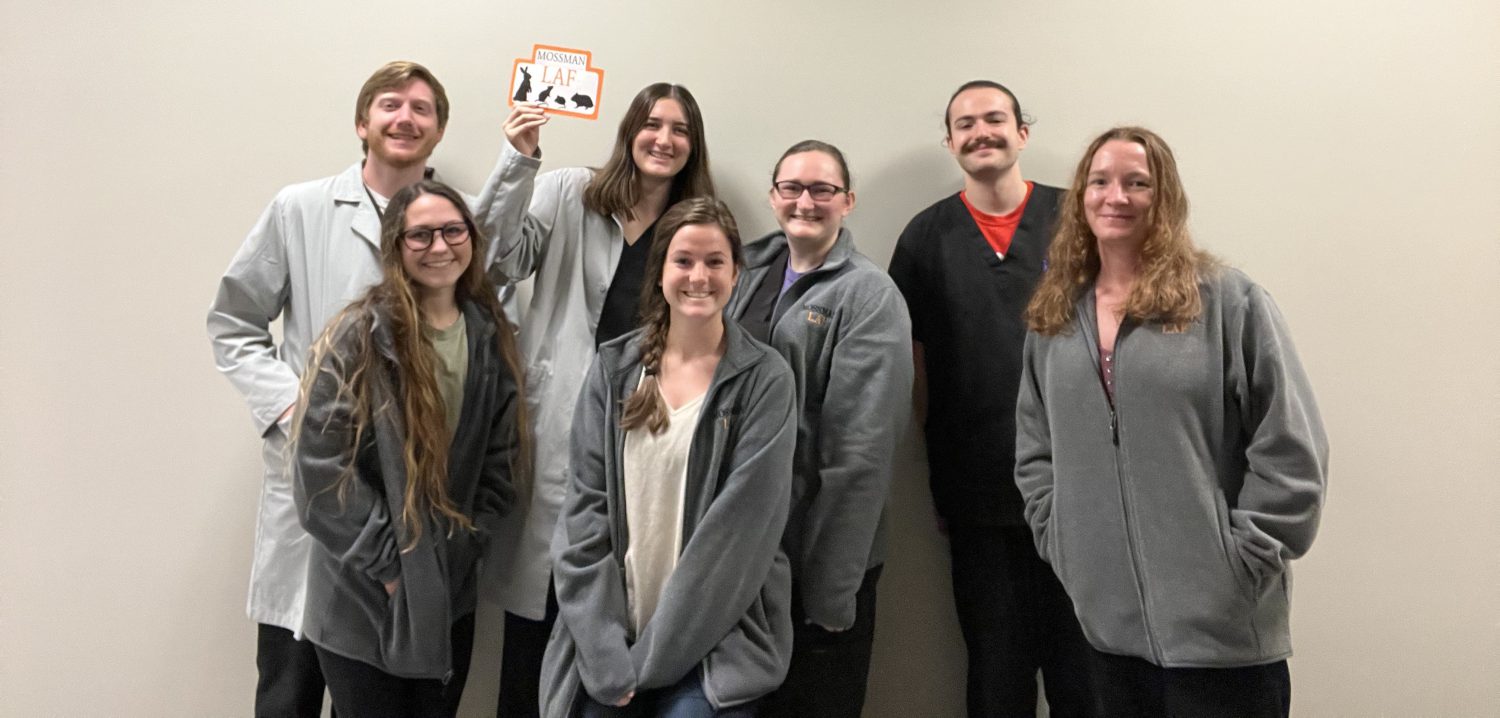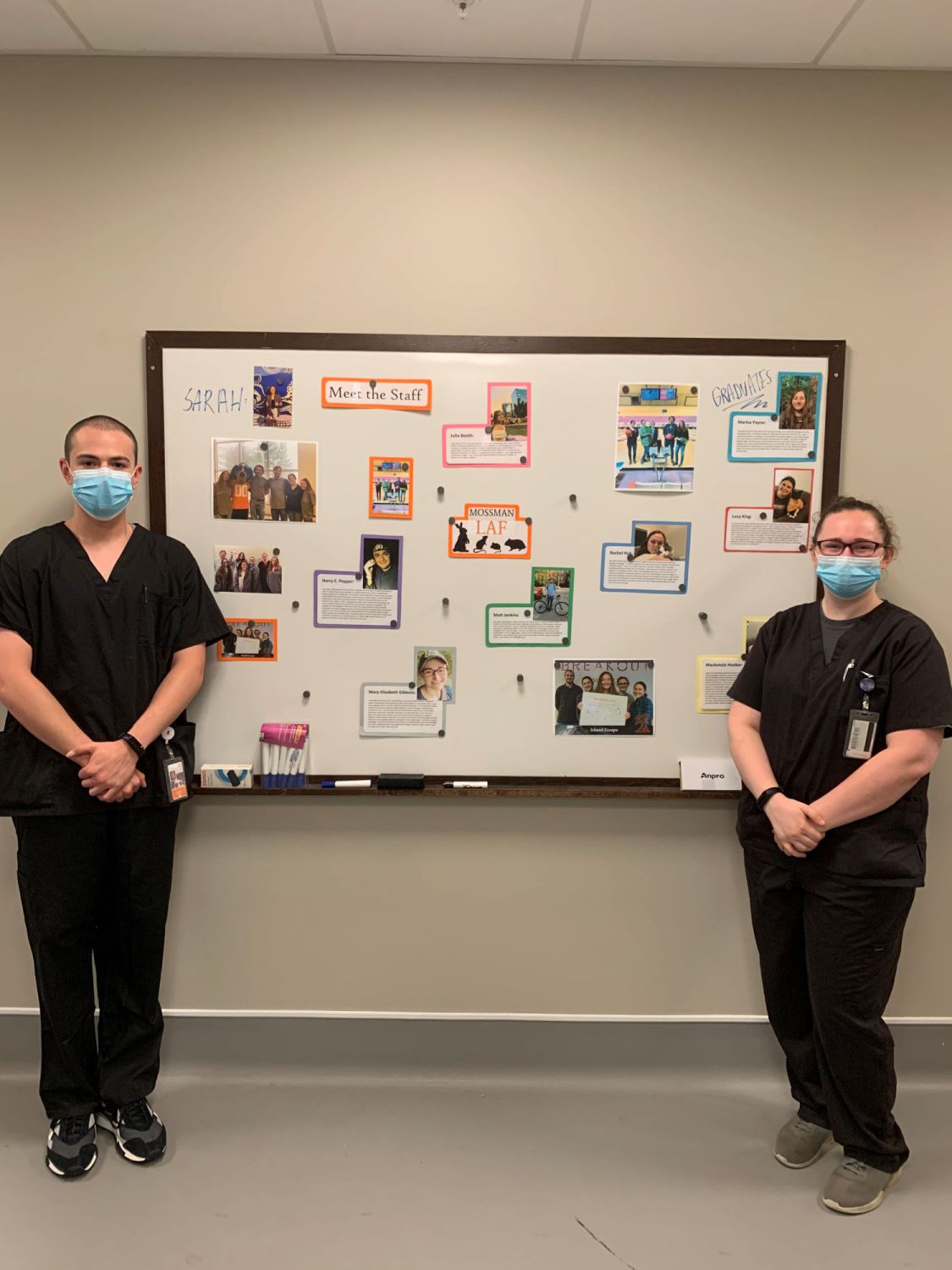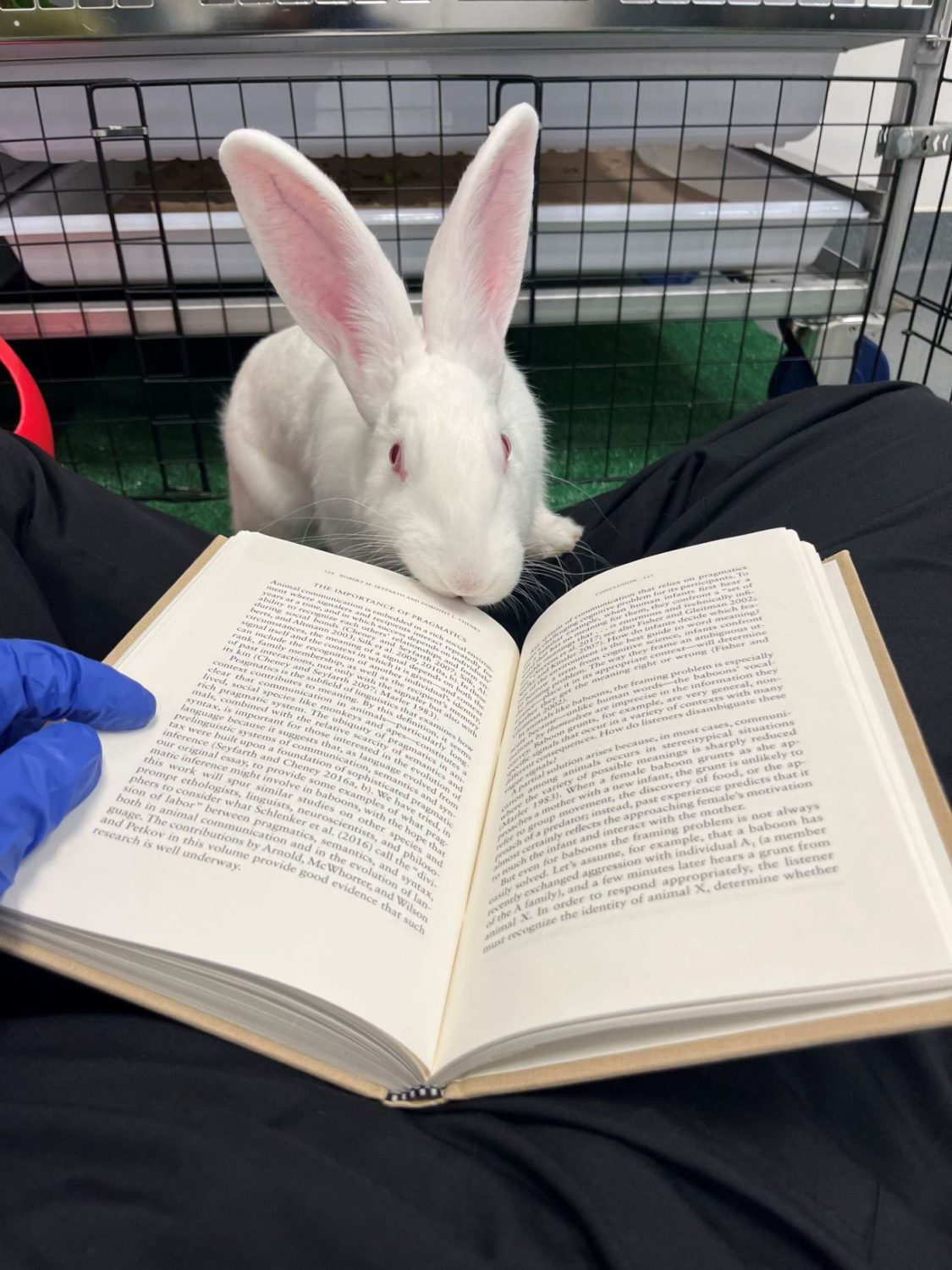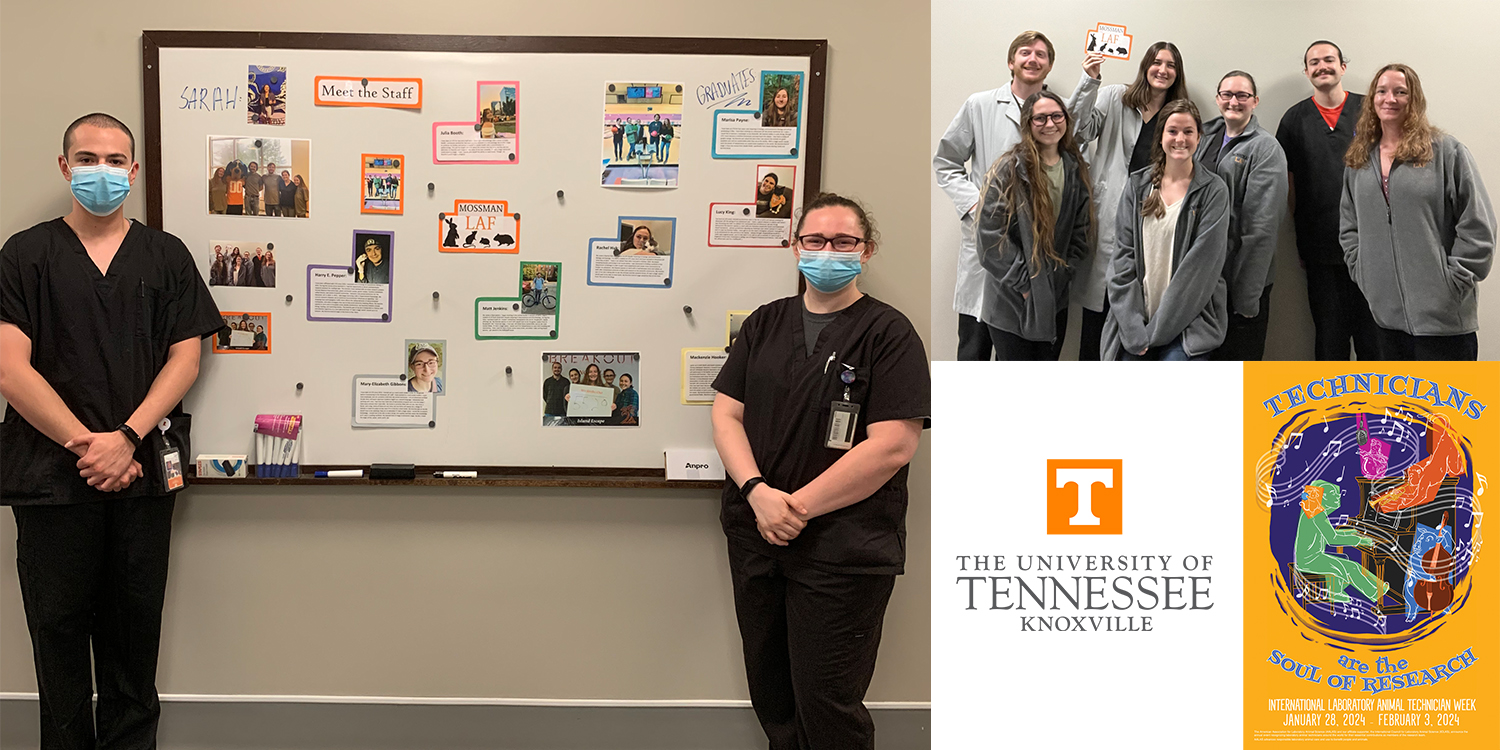International Lab Animal Tech Week is an annual celebration dedicated to recognizing and honoring the indispensable contributions of laboratory animal technicians in biomedical research. They are the backbone, heart, and soul of laboratory animal science, and their dedication extends far beyond the confines of the laboratory. Their unwavering commitment to compassionate care is the foundation of the life-saving medical advancements we enjoy today. And for that, we are thankful.
In a heartfelt tribute to lab animal techs worldwide, Allentown had the privilege of meeting the dedicated team at the Mossman Lab Animal Facility at the University of Tennessee, Knoxville, to learn more about the soul of research, lab animal techs. Furthermore, we interviewed Senior Laboratory Animal Technician Harry E. Pepper to get an in-depth, firsthand point of view on laboratory animal care. Pepper shared his passion for ensuring the well-being of lab animals and offered profound insights into the Mossman LAF’s unwavering commitment to exceptional animal care.

Lab Animal Tech Week: Technician Spotlight, Meet Harry E. Pepper
Pepper’s inspiring journey as a lab animal technician sheds light on the remarkable impact they collectively make in enhancing the lives of the animals under their watchful care. Dive deeper into the extraordinary world of UTK’s lab animal care and discover the compassion and dedication that define their noble mission.

“Well, I always loved animals as a child,” Pepper admitted when asked what sparked his interest in laboratory animal science. His journey unfolded during his undergraduate years at UTK. Initially pursuing a pre-med biology major, the intricacies of organisms and populations drew him in, especially after discovering a passion for evolutionary biology. The turning point came during a class on comparative animal behavior, where the ability to explain behavior through an evolutionary lens resonated deeply with him. He decided to delve into academia and follow his newfound passion.
Pepper’s transition into husbandry began with feeding eastern garter snakes and later evolved into studying Mexican freetail bats in Texas. His experiences ranged from low-density numbers in a small lab, caring for reptiles, to conducting fieldwork with bats, living in tents, drawing blood, collecting samples, and handling wild animals. These diverse experiences fueled his curiosity and solidified his commitment to the captivating world of lab animal science.
Furthermore, Pepper explained, “The more we know about other animals in general, the more we know about ourselves,” encapsulating his profound belief in the interconnectedness of understanding between humans and the animal kingdom. This philosophy is a powerful motivator for him to work with animals daily.
Lab Animal Tech Week: Celebrating Transformative Moments in Rabbit Enrichment at the University of Tennessee
When asked about his proudest moment as a laboratory animal technician at UTK, Pepper’s face lit up when he thought about changes they had made for rabbit enrichment last year.

The team introduced paired living spaces and implemented a revamped playpen enrichment strategy, strategically focusing on enhancing the rabbits’ overall well-being. For Pepper, this has been the most rewarding experience as a tech so far. Before these changes, the rabbits experienced individual playtime in a grassy pen for 15-30 minutes daily and olfactory stimulation via essential oil scent sprays and auditory stimulation via music/audiobooks three times a week.
The recent innovation involves introducing a ramp connecting each cage to a designated “yard” equipped with toys and artificial grass. This intentional move towards socialization aims to create a more natural and enriched environment, fostering companionship and positive social interactions. The new enrichment procedures increased the amount of grassy pen time to eight hours a day, five days a week. Plus, the team still provides the rabbits with the same olfactory and audio stimulation.
The newly designed living spaces provide the rabbits with heightened autonomy, allowing them to choose between relaxing in their cages or exploring the yard during staffed hours. While the definitive impact of the extended 8-hour yard access is yet to be fully understood, it holds the potential to be a game-changer. The increased autonomy enriches the rabbits’ lives and empowers the lab techs by introducing a more dynamic and rewarding aspect to their care routines.
UTK’s Approach to Animal Welfare and Ethical Research
In discussing UTK’s approach to maintaining animal welfare, the interviewee emphasizes the significance of up-close relationships with the animals, focusing on rabbits. The closer and more intimate the relationship, the better the understanding of typical behavior, facilitating the recognition of atypical behavior indicative of potential issues. This understanding enables enhanced care, enrichment, and satisfaction of species-specific needs.

Additionally, various regulatory bodies reinforce UTK’s rigorous commitment to animal welfare. Rabbits and hamsters, USDA-regulated species, undergo annual inspections, with additional scrutiny from institutional bodies like IACUC and OLAC. The interviewee highlights meeting the requirements for AAALAC accreditation, indicating the facility’s commitment to surpassing legal standards and ensuring animal well-being. They also discuss the IACUC’s role in conducting semi-annual inspections. OLAC is acknowledged as an essential part of the lab animal facility, contributing to the holistic approach to maintaining the best animal welfare standards at UTK.
Exceptional husbandry care in lab animal science is crucial for ensuring the well-being and health of research animals. By providing a comfortable and enriching environment, lab animal technicians contribute to the ethical treatment of animals, fostering trust in scientific research and promoting advancements in biomedical knowledge.
Thanking All Laboratory Animal Technicians Worldwide
In laboratories globally, the tireless efforts and compassionate care of lab animal technicians form the backbone of scientific research. Their dedication to ensuring the well-being of the animals under their care is commendable. These professionals work behind the scenes, often unnoticed, yet their impact on the lives of research animals is immeasurable. Day in and day out, they exhibit an unwavering commitment to creating enriching environments, fostering positive social interactions, and meticulously attending to the needs of the animals.
Beyond their instrumental role in maintaining animal welfare, lab animal technicians are the unsung heroes contributing to the advancement of scientific knowledge. Their dedication to refining care protocols, implementing innovative enrichment strategies, and adhering to rigorous ethical standards is crucial in shaping the future of biomedical research. To all lab animal techs worldwide, we appreciate your compassion, diligence, and commitment to animals and science. Lab animal tech week allows us to celebrate such commitment!
Recapping Last Year’s Lab Animal Tech Week Blog Story
For lab animal tech week last year, we wrote a blog story highlighting the essential contributions made by lab animal techs in research worldwide. Read more to learn about what lab animal techs do daily, how they do it, and why. Also, look into what some lab techs report as the most rewarding aspect of their career.


